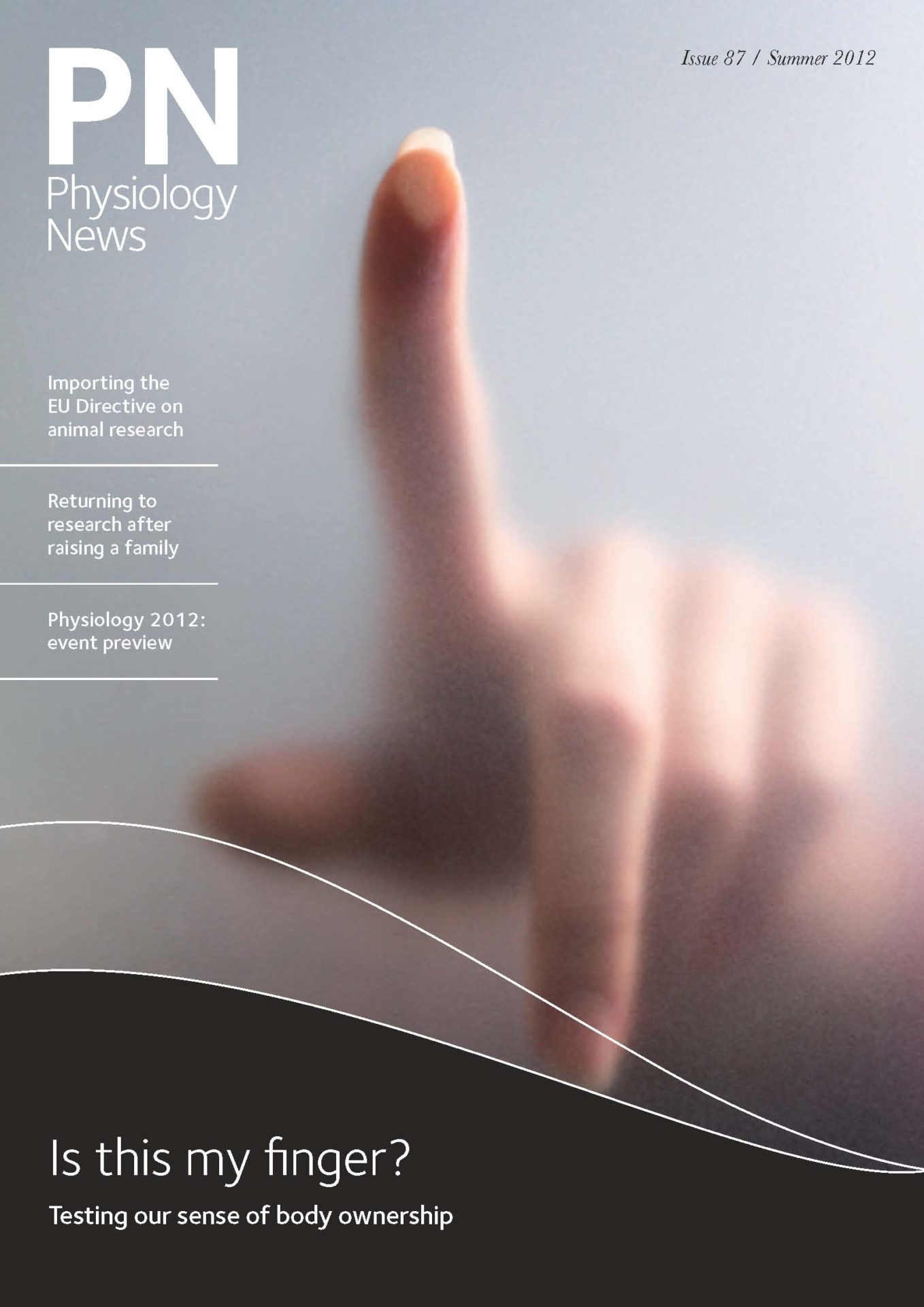
Physiology News Magazine
Importing the EU Directive on animal research
News and Views
Importing the EU Directive on animal research
News and Views
https://doi.org/10.36866/pn.87.11
The time is fast approaching; by November 2012 countries across the European Union will have to have new legislation in place relating to the use of animals in scientific research. In the UK this legislation will replace or update Animals (Scientific Procedures) Act 1986, and any changes may impact a significant proportion of The Physiological Society membership.
As the Government moves towards transposing EU Directive 2010/63 into UK law, The Society has been engaging with major stakeholders in the UK. This piece of European legislation will form the basis of the laws which will subsequently be adopted in EU Member States; stipulating, for example, cage sizes and restrictions on the use of certain animal species.
Last autumn, the Home Office ran a public consultation on the transposition of Directive 2010/63/EU, asking for insight and evidence as to how the UK should transpose individual articles. The Physiological Society submitted a response to this, additionally providing input into, and subsequently supporting, the response from the UK Bioscience Coalition (UKBSC).(*1)
On 17 May 2012, the Home Office finally released their response. The Physiological Society has welcomed what we perceive as the Government’s generally balanced approach.
There were no great surprises to those who have been working closely on the transposition of the Directive. Many of the proposals had been mentioned in previous discussions held between the Home Office and the bioscience community.
One such open discussion took place on 27 April at the ‘Time for Change’ event, jointly run by The Physiological Society, the British Pharmacological Society and Understanding Animal Research. Judy MacArthur Clark, Head of the Animals in Science Regulation Unit at the Home Office, gave the keynote speech, and indicated the likely direction that would be taken on many of the issues.
The Home Office plans to ‘transpose’ the Directive wording largely unchanged. However, the UK has in place various specifications and processes that are considered ‘superior’ to those determined in the Directive. Article 2 of the Directive permits Member States to keep such conditions if they wish, and so there has been much discussion over the extent to which the UK should do this, rather than go for maximum ‘harmonisation’ with other Member States. The UK Government has now determined that in terms of animal cages, all current ‘higher’ specifications will be retained. Where the Directive specifies larger cage requirements, those terms will need to be implemented by 2017, allowing some time to adjust.
In broad terms, the UK will see far fewer changes than will other Member States. However, the Directive will materially change some areas. Probably of greatest impact will be tighter rules on training, though the details (of this and also of confidentiality aspects) will not be sorted until 2013.
In some areas there is still space for discussion with the Home Office. The UKBSC will certainly be pushing on some aspects, including minimising red tape over personal and project licenses, and pushing for further clarification on a number of grey areas. Over the next few months, we will be continuing to work with these organisations and the relevant government bodies to reach resolution where possible.
It is thought the proposed UK legislation will be laid in front of Parliament in July 2012, before a yes–no vote in both Houses in the autumn. Once the timescale is announced, The Society will be calling on our Members to write to their Members of Parliament, and to the Lords, asking them to support the legislation as it stands and not require additional restrictions through associated documents such as the Codes of Practice or Home Office Guidance.
For further information on the EU Directive itself or the proposals being made by the UK Government, please contact the Policy Manager on policy@physoc.org.
*1 The UK Bioscience Sector Coalition comprises the UK’s key bioscience organisations involved with the use of animals in scientific and medical research, and represents the perspectives of academia, industry, small and medium enterprises, charities and other research funders, as well as patient and medical groups.
